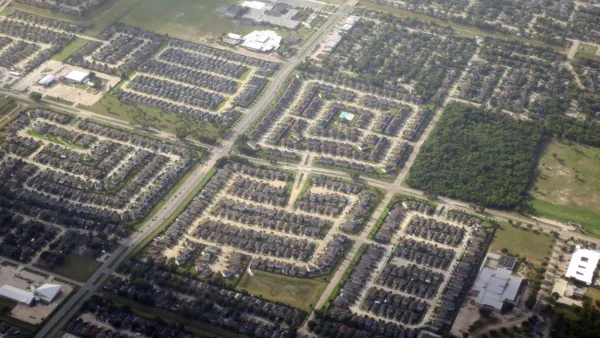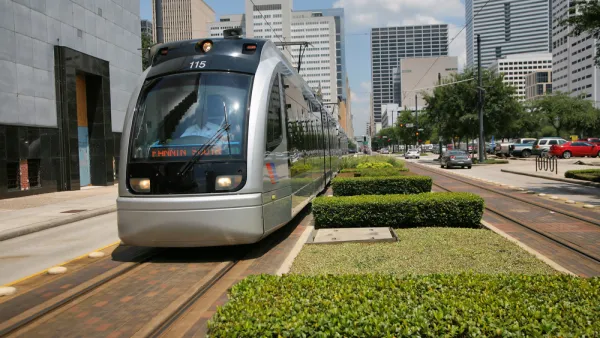In a city that has long typified auto-centric sprawl and unplanned growth, a funny thing is happening. An urban revival has taken root as the city competes with its suburbs and other big cities to attract residents and businesses.

"Historically, as Rice University’s Kinder Institute for Urban Research succinctly puts it, Houston has been viewed as 'the most sprawling, least dense, most automobile-dependent major city in America.' And for many years, Houstonians seemed to be perfectly content with that. But there’s evidence that’s no longer the case," writes Ryan Holeywell. "The institute’s annual survey of Houston-area residents last year found that half the residents of Harris County, of which Houston is part, would prefer to live 'in an area with a mix of development, including homes, shops and restaurants” as opposed to a 'single-family residential area.'”
"As a result, in recent years, city leaders have proudly rolled out a seemingly endless list of programs and policies they say will make Houston denser and more 'livable' in an effort to capitalize on the growing fascination with urban living."
Despite, or perhaps because of, such initiatives, a battle is taking place over the city's future. "On one side, more strident urbanists say the current plans are not nearly bold enough; defenders of the current arrangement say the city should avoid the temptation to change at all."
FULL STORY: Houston: The Surprising Contender in America’s Urban Revival

National Parks Layoffs Will Cause Communities to Lose Billions
Thousands of essential park workers were laid off this week, just before the busy spring break season.

Retro-silient?: America’s First “Eco-burb,” The Woodlands Turns 50
A master-planned community north of Houston offers lessons on green infrastructure and resilient design, but falls short of its founder’s lofty affordability and walkability goals.

Delivering for America Plan Will Downgrade Mail Service in at Least 49.5 Percent of Zip Codes
Republican and Democrat lawmakers criticize the plan for its disproportionate negative impact on rural communities.

Test News Post 1
This is a summary

Test News Headline 46
Test for the image on the front page.

Balancing Bombs and Butterflies: How the National Guard Protects a Rare Species
The National Guard at Fort Indiantown Gap uses GIS technology and land management strategies to balance military training with conservation efforts, ensuring the survival of the rare eastern regal fritillary butterfly.
Urban Design for Planners 1: Software Tools
This six-course series explores essential urban design concepts using open source software and equips planners with the tools they need to participate fully in the urban design process.
Planning for Universal Design
Learn the tools for implementing Universal Design in planning regulations.
EMC Planning Group, Inc.
Planetizen
Planetizen
Mpact (formerly Rail~Volution)
Great Falls Development Authority, Inc.
HUDs Office of Policy Development and Research
NYU Wagner Graduate School of Public Service





























